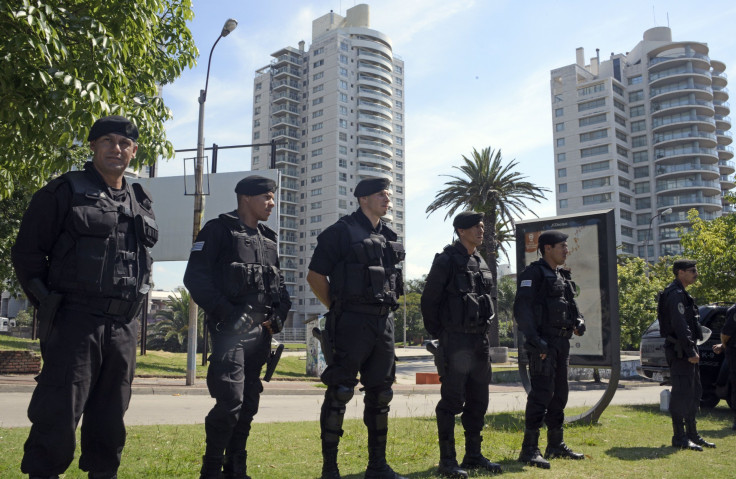Uruguay Expels Iranian Diplomat Over Bomb Scare

Uruguay expelled a senior diplomat from the Iranian Embassy, accusing him of involvement in a bomb scare near Israel’s embassy in Montevideo in January, Israeli daily Haaretz reported Friday. The official was dismissed from his post two weeks ago, according to Haaretz, which cited an unidentified “senior official in Jerusalem.” While Uruguayan officials have informed Israel of the move, they chose not to publicly announce it.
Uruguayan intelligence’s investigation of what appeared to be an explosive device revealed the complicity of someone at the Iranian Embassy, according to Haaretz. Consequently, the Uruguayan government consulted Iran before deciding to expel the senior diplomat, who has not yet been identified. Israel’s Foreign Ministry declined comment on the expulsion. “I am aware of it, but I have nothing to add,” a spokesman told Agence France-Presse.
An apparent bomb was discovered near the Israeli Embassy, which is located in the World Trade Center complex in Montevideo, on Jan. 8. A bomb squad proceeded to safely detonate the device, only to ultimately determine that it was a fake. The device looked convincing and was equipped with a fuse, detonator and other bomb features.
It is not clear who planted the device, or what its purpose was. “It might have been put there to see the response time” of responders, or "to size up the quality of the security of Israel’s embassy,” bomb squad officer Lt. Col Alfredo Larramendi said, according to Times of Israel. It was found some 230 feet from the building by bomb-sniffing dogs. Larramendi told reporters that after neutralizing the device, he found out that it would not have posed a threat to anyone.
Israeli embassies worldwide have been on heightened alert for retaliation ever since the assassination of Hezbollah’s Jihad Mughniyeh and an Iranian general in Golan Heights two weeks ago, killings that have commonly been attributed to Israel. The Lebanese Shiite Hezbollah, conceived by Muslim clerics and backed by Iran, has been in conflict with Israel since its founding in 1985. Iran and Hezbollah have well-established terrorist cells throughout South America, comprising largely Shiite Lebanese migrants.
In Buenos Aires, across the Rio de la Plata from Montevideo, an attack on a Jewish center in 1994, allegedly linked to these cells, killed 85 people and wounded hundreds. The crime continues to shake Argentina as the prosecutor investigating the case, who accused the government of a coverup, was found dead on Jan. 18.
© Copyright IBTimes 2024. All rights reserved.












